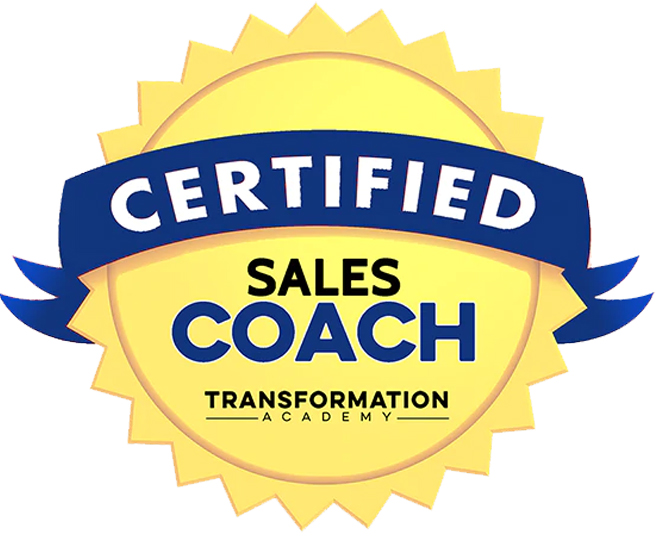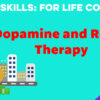In life, Emotional Intelligence, or Emotional Quotient (EQ), is the ability to be aware of, use, understand, and handle our emotions. It also refers to the way we respond to the emotions of others. Emotional Intelligence primarily focuses on self-awareness, however it also means being capable to view and understand things from another person’s perspective. Our emotional intelligence allows us to respond according to different settings, different situations, and plays an important role during stressful and difficult times. Studies have shown that a healthy level of emotional intelligence can boost an individual’s mental health, job and business performance and leadership skills.
In Sales, emotional intelligence or EQ, plays a very important role in our sales conversations, and is something that is considered a “must have” for any successful sales person, especially if they are in a leadership role.
Let’s start by focusing on the concept of empathy and the role this plays in becoming the most successful salesperson possible. How do we make the distinction between empathy and sympathy? Some people believe that these two concepts are the same thing, some see them as very different, however not many fully understand the actual differences between the two and their different applications. Empathy and sympathy are both ways we respond to the suffering of people around us. But there is a crucial difference: Sympathy is acknowledging someone else’s pain, but empathy is choosing to feel the pain with them. Sympathy says, “I care about you,” and empathy says, “I’m hurting with you.”
Sympathy is being aware of and sensitive to the needs and suffering of others. It’s being able to recognize or honor the reality of a tough situation. You may express sadness, but you have natural boundaries that keep yourself from feeling what the sufferer is feeling. Sympathy most often allows a person to feel for another’s situation but they can remain unmoved themselves. As an example, you could be sitting with a friend who shares with you a fight they had with their significant other. They express how they are so mad at them and why they are mad. You can sympathize with them and acknowledge their feelings but not feel the same level of anger that your friend is feeling.
Empathy is understanding and experiencing what others are going through. It’s like sitting in their pain. In order to empathize you’ve got to imagine yourself in the situation of the other person and feel yourself, how they feel. In order to have empathy, you must dig in, truly listen to and know someone so well that you can internalize their experience. As an example, if the friend is experiencing difficulties with their relationship, you can invite them into your own experiences, sharing how a similar situation made you feel. When you do this, you are sitting in their pain. Empathy is nonjudgmental. You must remain curious and find a way to identify with another person’s experience. There is no time to think about it. You don’t pass any judgment on their experience. You identify with it and truly share that experience.
If you are seeking the help of a therapist because you are suffering in one way or another, the therapist listens attentively to how you express what you are feeling. They can sympathize with you and share insight to what it means to feel that way and how you may be able to redirect those feelings. They are not empathizing.
Depending on the circumstances, you can choose to have sympathy or empathy for someone’s experience. If you choose sympathy, you can hear the person out, let them know that you hear what they are saying and let them know that you support them. If you choose to empathize with them, you have to dig deep and find a situation where your experience was the same, or at least similar to theirs and share their emotions with them, sitting with them in their feelings, in that moment.
Think of a time when you spoke to a friend, or a family member about something that was on your mind, a problem that you needed a solution to, and think about how they reacted to what you said. If you were sad and crying, did they start being sad and crying as well, even though your problem was not their problem? If they were doing this, they were empathizing with your situation. They were sharing your pain. Or, did they listen to you and try to understand your reason for sadness, and then offered you some solutions on how to get past that situation? If this is how they responded, they were expressing sympathy.
Now think of yourself as being the person that was comforting another friend or family member in their time of need. Have you ever had a friend who wanted to talk to you because they were very upset or very angry about something or someone? What was your approach to that?
By identifying these examples and your own behavior, you can identify your current level of emotional intelligence and that will help you figure out if you need to work on your empathy skills or not.
Let’s bring this conversation back to selling and see how empathy can help you bring solutions to your clients as well. Of course, working with clients who are strangers, not family members or friends, it’s different, because the emotional connection is less likely to stand in your way. You would be surprised how many people get caught up in other people’s problems and lose sight of the solution that really matters.
An empathic salesperson is looking to improve someone’s life, not just selling them something. An empathetic coach, when it sells its products or services, wants to help people change their lifestyle, and that goes way beyond the actual sale. If they are able to show empathy, the client or customer will feel that they share an experience or goal with their salesperson and that will likely incentivize them to buy the item or service and build a relationship with the salesperson.
A Personal Story
Shortly after arriving in the US, I took a job as the cosmetics sales manager at the Shiseido counter at our local Macy’s. Shideido is one of the most well known cosmetic companies in the world, based in Japan, with a reputation for their amazing skincare products, however, in the US, it only has a small presence in the stores, because many people have never heard of it. But those who know it, are very loyal to the brand. When I started, I had no idea of what Shiseido was, but I took the job because it was available.
I ran the Shiseido counter for a few years while I was going to school for my business degree. As I became more knowledgeable about the products I eventually had the highest amount of revenue increase, and the highest number of repeat clients from all Shiseido counters in the state of Florida. Every time somebody would ask me, “how do you do it,” my answer was simple: I offer solutions to my clients, I take my time to educate myself and do research about the chemistry and the ingredients in the product that goes beyond the little pamphlets that come with each moisturizer box. I also used the product myself and gave it to all my friends and family. This way, I knew how the skin reacts, how it feels, the smell, texture, how to couple the use of the product with the application of makeup, etc.
When a customer was sitting with me and I was going over the product with them, they understood that I wasn’t just selling them. They knew that I used the products too and could share my experience with them. By sharing my experiences as I was applying the products, they would see that they were having the same type of experience with the products that I had.
Being able to show empathy was especially difficult for me because I was diagnosed with Asperger’s, and if you know anything about Asperger Syndrome you would know that most people with this diagnosis lack the ability to empathize with others. Knowing that having this condition would make it more difficult to empathize with my clients and therefore help them, I decided to take some extra psychology courses which would help me to better understand myself and become a better salesperson.
Without having worked on my emotional intelligence levels, I would have never been able to offer empathy and that would have hurt my business.
I have been in sales all my life and from my own consumer experiences, have learned to appreciate when I feel that somebody has truly put their effort into helping me, not because they want to sell me something so they can get a commission or to meet their quota, but because they identified with me and truly cared.
At least at the beginning, if not throughout your selling career, there will be times when you are in a conversation with the clients and suddenly you feel like all the sales techniques that you’ve learned are totally gone and forgotten. That happens a lot to sole proprietors who become sympathetic to a client’s personal story or feelings and let themselves be coerced into lowering their prices, because they start feeling sorry for the client. Even if they know that what they have to offer it’s valuable they become trapped by being overly sympathetic.
By improving our self-awareness, we can grow our ability to identify and control those triggers
that makes us undervalue ourselves and our services, and we can catch ourselves during difficult conversations, identify our emotional state, and be able to switch from sympathy to empathy in order to truly help the client.
Colleen Stanley, the president of Sales Leadership, a sales development firm specializing in integration of emotional intelligence in sales and leadership, talks about four categories that serve as the most important emotional intelligence skills that we can use as salespeople and in life in general.
These four skills are: 1. The 3 Es, 2. stress management skill, 3. overcoming self-limiting beliefs and 4. recognizing and embracing our failure and learning from it.
The 3 Es stand for: emotion management, emotional self-awareness and empathy. These three skills, once mastered, will allow us to tune into our own emotions, regardless of what’s happening around us and what other people do or say. Building our own emotional intelligence requires that we not be totally influenced by what’s around us but rather, the control stays within us. How we react to things reflects directly on how we manage our emotions. Managing our emotions can reduce the likelihood of a flight or fight situation. When we become confrontational with the clients, or with our friends, it creates problems and it’s definitely not productive. Becoming confrontational works against what we really want to achieve. In sales, when we don’t know how to control our emotions and our responses, we struggle to make a sale, no matter how many closing techniques we may know. Being emotionally self-aware means that we learn to pay attention and recognize our own patterns. Doing this prevents us from continuing to make the same mistakes. When we approach a client with empathy, our relationship will be characterized with trust, loyalty, longevity, referrals, and business success.
The second skill to master it’s the stress management skill. Have you noticed that 99% of the time a person can be absolutely enjoyable, sweet, smiling, however there is that 1% of the time, when, due to tiredness, hunger, approaching deadlines at work, or a stressful family situation, whatever the reason may be, stress plays a huge role in how we behave and how we communicate? When asked, many career salespeople will say that being in sales is a stressful job. Dealing with people in general can be stressful because each person has their own story, their own points of view, their own mindsets, and their own day-to-day life. If we don’t know how to manage stress, our minds and bodies are physically and chemically affected. Bodies can produce high levels of cortisone in a stressful situation, resulting in a person who feels that they cannot perform at their best. They feel they don’t know things they need to know to do their job. They feel that they are not productive. Understanding that this can be the case for both the buyer and the seller, helps you be an empathetic salesperson. If you as a salesperson don’t know how to manage your own stress, you will not be able to respond in the best way to a client who may be dealing with their own stress, and instead of working towards a win-win situation, which sales are supposed to do, you’ll be heading down a path towards a lose-lose situation, which doesn’t help anybody.
What are some techniques that we can use in order to develop our stress management skills? 1. We need to identify our triggers and our patterns. If you notice that not eating for 7-8 hours and your blood sugar levels go so low that you start being cranky, then maybe you can prepare yourself by having a handful of nuts or something else for you to snack on during that time. 2. Another method of dealing with stress on a regular basis is physical exercise and dance. Don’t forget that even though you may be in business by yourself, or you may have a career as a salesperson, or as a coach – you need to take care of yourself in order to take care of others. Make and commit to a regular exercise routine. Take long walks in nature, listen to uplifting music, surround yourself with happy, satisfied people, in other words, work towards finding ways to develop new skills to manage your inevitable daily stress because if you do, you will be able to keep your frustration levels in check, and make sure that you are professional and as productive as you can be.
The third skill to develop is being able to recognize and overcome your own self-limiting beliefs. We all have a past, we are all part of a global society in which we construct our own identity around the stories we’ve heard from our parents as well as the stories that we tell ourselves, and by repeating these stories, again and again, we identify more and more with them, they become our truth. So, if you believe that you are a motivated person, that you are successful, then chances are that you are telling stories about yourself that will reflect these qualities, and because of these beliefs, you are going to perform in your career and in your business just as you describe yourself in your stories. On the other hand, if you believe that you are not good enough, that you lack skills and aptitudes, and you don’t do anything about that; or you believe you are not lovable, or not able to convince anybody of anything, chances are you’re going to act that way and the ones around you are going to start perceiving you that way as well.
So how can you fix this?
First, look inside yourself and identify who you are and what your belief systems are. We all have to take our beliefs and our values, and put them in balance to see if they are a good match for what we want to accomplish. If your belief systems are a good match, then good for you! More often than not, those beliefs will not match. There is bound to be something that will hold us back. Maybe you have a belief that is based on a story you’ve been told in the past, something that might have happened in childhood, or even something indirect, that might have happened to a family member or our friend in childhood. We can adopt those experiences which are not our own and make them feel like they belong to us, which can result in barriers being put in front of us.
Another personal account: I grew up just like everybody else, with a significant amount of limiting beliefs. I’ come from a Latin Eastern European country the only Latin Eastern European country, where at the time I was growing up, women, even though they might have had a job and worked full time, were mostly seen as mothers and wives, and most of the women around me, when asked who they are, identify with being a mother or a wife of someone. Instinctively, I grew up with a knot in my stomach, because every time I would think of myself as just a future mother or a future wife, I would feel that that’s not fully representing me. I knew that there was more to me than just that. Of course, being a mother and being a wife are huge roles and are important, but for me, there was more to life, and I knew it.
When I was a teenager in high school and I had my first boyfriend, we would discuss things at times, about money, about politics, and he often told me that I think like a man. He didn’t tell me that in a prideful way, more like it was a fault or a defect I had. That didn’t sit well with me, I didn’t like it. I didn’t like the idea that there was a male way of thinking and a female way of thinking, and that somehow, I was categorized as not belonging where I was supposed to. In time I realized that I needed to surround myself with very liberal people, in matters of social thinking, because that was the path of least resistance.
Later when I came to the United States, through reading and meeting different people with different mindsets, I realized that even though I’ve always rebelled in my own way, against the status quo for how women were seen and supposed to think in my country, I could identify in myself, many of these limiting beliefs then I had fought against. I realized that those beliefs had more influence on who I was, then I wanted to believe. After I read “The secrets of the millionaire mind” by T Harv Ecker, I realized that my money mindset was directly connected to the social status of a woman from an Eastern European Latin country. It took years to recognize and overcome my own limiting beliefs, and I’m sure there are probably more that I haven’t identified yet. The key is to take the time to look within ourselves and identify what beliefs we have that can possibly hold us back. Once we have identified those limiting beliefs, we will be able to move forward.
The 4th emotional skill that we should learn is to accept our failures and to learn from them. In order to become master experts in anything, we have to make mistakes first. Many modern cultures identify failure and making mistakes as something negative, and therefore creating in us a negative emotional connection to them, when in reality it will be so much more beneficial for our growth and for our success to find a way to embrace our failures, and to learn from them, but most importantly to not let us be defined by them.
We also need to learn that making an unwanted mistake in our business or at work does not define our life and it does not define who we are.
We need to learn to be able to separate what we do with our limited human bodies and human minds, versus who we truly are, as in spirits and internal beings in my opinion. Our personal value as individuals it’s tightly connected to how we present ourselves in society in both personal and professional environments, but it has nothing to do with how successful we are at a particular task. All we need to do is to again become aware of what our strengths and weaknesses and opportunities and threats are, and to accept them, learn from them, take advantage of our opportunities to grow, and bounce back.
We should not take No from a client as the ultimate failure or as a rejection of us. We should be understanding of them and respect boundaries. Clients are people who have their own lives, their own issues, and many times if they react in a negative way being in front of us, many times that has absolutely zero to do with us and what we are talking about at that moment. Most of the time people carry with them, on their shoulders, a bunch of stress and unresolved issues. This is why all these four emotional skills are so important to develop because you cannot afford to be that businessperson or that coach, that salesperson in general, who is put down by a simple mistake or a wrong word they might have said.
You see how they’re all connected. It’s important to learn how to manage our emotions, how to manage stress, how to identify our limiting beliefs, but it’s also important to recognize that we are human and nobody’s perfect. and when we slip and we fall and when we fail, we just must accept it, learn from it, and move on.
So, the first and most important part of developing your emotional intelligence for yourself as a human being but also to be used in business and in sales, it’s to start paying attention to your own thoughts, to your own emotions and to your own reactions in social settings. See how you respond to others, see how you interact with them, see what you are sensitive to, see how good you are at communicating and what is it that you need to improve. Find your spirituality if that helps you, meditate if that helps you, dance, exercise, and all together learn.
Author: Sanda Kruger
Sanda is an entrepreneur, real estate investor, health coach and professional dancer. Sanda is an entrepreneur with more than 20-year experience in business development and project management in the fields of life, health and fitness coaching. She is also a real estate investor and a banker, who learned outstanding adapted business strategies, sales and marketing techniques, communication, and goal setting skills, hands-on, through life and work experiences. She is a certified fitness professional and is the creator of two original fitness programs, called BellyCore® Fitness and AquaCor®.








